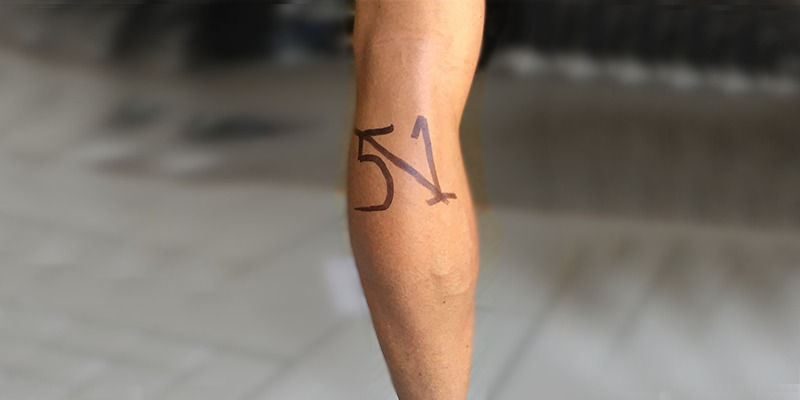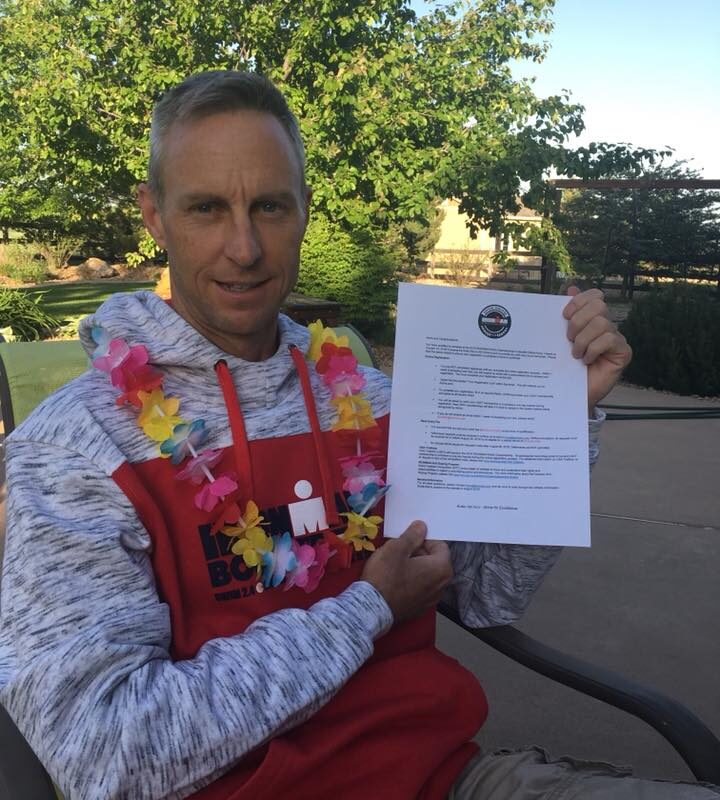I Got My Pro Triathlete License… at 50 Years Old
How Bob McRae raced pro in his mid 50s, showing us that age is just a number

In July of 2022, Bob McRae waded into Mirror Lake in upstate New York and glanced around. To his right and left were some of the best triathletes in the world: Cody Beals, Justin Metzler, Heather Jackson, Sarah True. He couldn’t help but feel a bit awe inspired to be racing—as a pro—with the best of the best.
“I got lucky and worked hard and took the chance. Those people [pros] there are on a different level. To toe the line, it was fun until the gun went off and they were gone.”
When McRae crossed the finish line some ten hours later, he was more than ninety minutes off earning a spot on the podium. But it didn’t matter, that wasn’t the goal that day. He knew what he had just achieved, given his rocky journey to Placid, was enough to justify all of the work he had put in over the years.
“I was happy, I was really happy. Because of how difficult the last four years have been. And especially the last six months,” said 53 year old McRae.
Late to the game
Like many entrants to the sport, McRae discovered triathlon in his mid 30s.
Said McRae, “I don’t come from a background of Olympic athletes, or even capable athletes for that matter, nor did I participate in anything really meaningful in that regard until my 30s.”
Despite not having an athletic background, McRae was no stranger to discipline and commitment. After high school, he joined the Navy and served for seven years. After college, he took up running to drop the weight he had packed on after finishing school. He may not have realized it then, but that was the start of his foray into endurance sports.
Following the suggestion of his wife to expand from running to triathlon, McRae took to the pool. Said McRae, “Swimming from one side of the pool was a real task.” Together they trained for their first triathlon and completed an Olympic distance race later that year. He knew he had stumbled upon something special.
McRae had a knack for the sport. “I got better as the distance got longer,” said McRae. Within three years, he was ready to take on and compete in his first full Ironman in Arizona in 2007.
“I was so upset I didn’t go under 10 hours. But it was still pretty good. It was my next one, Coeur d’Alene, 10 weeks later that I qualified for Kona. I went to Kona and saw the best in the world there and from that point on I wanted to keep doing that forever.”
Everything doesn’t always come up roses
But despite his early success at Coeur d’Alene, McRae’s trajectory into triathlon wasn’t straightforward.
In early 2010, he started experiencing health issues that completely sidelined him. He suffered from fatigue, severe inflammation, asthma and depression. Said McRae, “I couldn’t sleep at night because it would come on and I couldn’t breathe.” Doctors were unable to pinpoint the source of the problem.
Later that year, he and his wife welcomed their first child, a little girl. This joyous time in his life was overshadowed by his mystery illness and his frustrations grew. He was no closer to a diagnosis.
Training stopped. “I was lucky if I could play with my daughter at the playground,” said McRae.
Finally, after 18-months of seeing a revolving door of doctors, one was able to diagnose him with Lyme Disease. Over the course of several months, using a combination of antibiotics, herbs and homeopathic remedies, he started to see an improvement in his overall health.
After losing years of his life to this disease, he was finally able to sleep, play with his daughter and start training again.

Going pro… slowly
It was a slow reentry into the sport. His health wasn’t at 100 percent, far from it in fact. He struggled with tendinitis, a compromised immune system and inflammation. But he found that through diet, routine and consistency he could stay grounded and manage his health. Triathlon was a driving force. “A lot of people focus [solely] on fitness; but first it needs to be health, then fitness.”
He was patient and listened to his body as he trained. Slowly, he started to see the gains he was hoping for, and he realized he still had more in him to give to the sport.
Eventually in 2016, he was back on track and had some of the best performances in races across the country. “I really started figuring things out and winning my age group for the first time in my life,” said McRae.
With every peak comes a valley. As McRae prepared for Ironman Sacramento 2021, he was in arguably the best shape of his life. But on the day of the race, it was canceled, due to a freak storm. McRae’s patience was challenged once again.
He had planned to race Ironman Cozumel, just weeks later, but then COVID was his next challenge. So, it appeared 2021 was a bust. But despite all of these hurdles, he always found his way back to training.
It was actually in 2018 that he was rewarded for his dedication, patience and hard work, when he earned his pro card following his incredible performances at Ironman Boulder and at Kona. After the hurdles of the lingering auto-immune issues, the pandemic and a broken ankle, he would finally have the opportunity to race as a pro at Lake Placid in 2022.
When reflecting on his training leading up to his first pro race, he said, “The training was frankly hard. I always put pressure on myself but the pressure was higher because I wanted to do it justice. I didn’t want to just show up. I don’t do that. People expected more of me and I expected more of myself.”
McRae suffered a broken ankle in February, so he was unable to train like he would have wanted leading up to the race. He knew his run split would suffer but that wasn’t going to stop him from basking in the glory of his first pro race.
When asked about some of the most memorable aspects of the race as a pro, he responded: “It was insane to be able to use a clean portapotty at my leisure,” he chuckled.
Said McRae, “I would have never ever expected to even qualify for Kona, let alone get a pro card. I mean that’s crazy. I think a lot of people underestimate what’s possible in the long term, and overestimate what’s possible in the short term.”
His pro card expires at the end of this year and McRae doesn’t think he will be able to secure a renewal. While his pro career might not have had longevity, he is still very much in pursuit of the only challenge that matters, his full potential.

